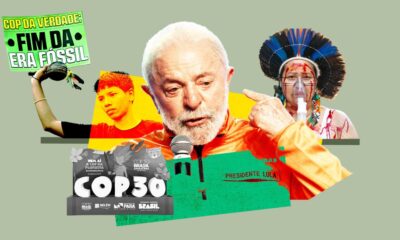Science
Swedish Coffee Consumption Overtakes Beef in Amazon Deforestation

A recent report by the World Wildlife Fund (WWF) reveals that Swedish coffee consumption has surpassed beef in its impact on deforestation in the Amazon rainforest. This significant finding highlights the broader implications of global trade and consumption patterns on environmental degradation, particularly in vulnerable ecosystems.
The report, which involved collaboration with researchers from Chalmers University of Technology, presents a comprehensive analysis of the factors driving deforestation in the Amazon. It emphasizes that products like coffee are not only affecting local environments but are also linked to international trade practices, amplifying their global impact.
According to the report, coffee consumption in Sweden has become a leading contributor to deforestation, overtaking beef—a product historically associated with significant environmental harm. The findings indicate a shift in consumer behavior, suggesting that the demand for coffee is exerting pressure on rainforest areas, contributing to habitat loss and biodiversity decline.
Understanding the Drivers of Deforestation
The WWF report outlines various drivers behind deforestation, such as agricultural expansion, logging, and infrastructure development. It highlights how international markets demand products that can lead to environmental degradation in distant regions like the Amazon. Sweden, known for its high coffee consumption, is now part of this complex web of global trade that affects ecosystems far beyond its borders.
In recent years, awareness regarding sustainable consumption has grown. Nonetheless, the report underscores the need for more rigorous measures to mitigate the environmental impact of consumer choices. It calls for increased transparency in supply chains and urges consumers to consider the ecological footprint of their purchases.
The implications of this report are significant for policymakers and consumers alike. Understanding the environmental consequences of everyday products can drive change in consumption habits and encourage sustainable practices. The data presented serves as a wake-up call to reconsider how preferences for certain goods can lead to unintended ecological harm.
A Global Challenge
The findings of the WWF report resonate beyond Sweden, as they reflect a global challenge faced by numerous countries linked to deforestation through trade. Addressing these issues requires collaboration among governments, businesses, and consumers to develop sustainable alternatives and reduce reliance on products that contribute to the destruction of vital ecosystems.
As the world grapples with climate change and biodiversity loss, the need for actionable solutions becomes increasingly urgent. The report emphasizes that combating deforestation is not solely the responsibility of the producing countries; consumers across the globe must also play a role in fostering sustainability.
In conclusion, the shift in the impact of Swedish coffee consumption on Amazon deforestation serves as a poignant reminder of the interconnectedness of global trade and environmental health. As consumers become more informed, they have the power to influence markets and demand sustainable practices that protect our planet’s invaluable resources.
-

 Entertainment3 months ago
Entertainment3 months agoAnn Ming Reflects on ITV’s ‘I Fought the Law’ Drama
-

 Entertainment4 months ago
Entertainment4 months agoKate Garraway Sells £2 Million Home Amid Financial Struggles
-

 Health3 months ago
Health3 months agoKatie Price Faces New Health Concerns After Cancer Symptoms Resurface
-

 Entertainment3 months ago
Entertainment3 months agoCoronation Street’s Carl Webster Faces Trouble with New Affairs
-

 Entertainment3 months ago
Entertainment3 months agoWhere is Tinder Swindler Simon Leviev? Latest Updates Revealed
-

 Entertainment4 months ago
Entertainment4 months agoMarkiplier Addresses AI Controversy During Livestream Response
-

 Science1 month ago
Science1 month agoBrian Cox Addresses Claims of Alien Probe in 3I/ATLAS Discovery
-

 Health4 months ago
Health4 months agoCarol Vorderman Reflects on Health Scare and Family Support
-

 Entertainment4 months ago
Entertainment4 months agoKim Cattrall Posts Cryptic Message After HBO’s Sequel Cancellation
-

 World2 weeks ago
World2 weeks agoBailey Announces Heartbreaking Split from Rebecca After Reunion
-

 Entertainment3 months ago
Entertainment3 months agoOlivia Attwood Opens Up About Fallout with Former Best Friend
-

 Entertainment2 weeks ago
Entertainment2 weeks agoCoronation Street Fans React as Todd Faces Heartbreaking Choice





















